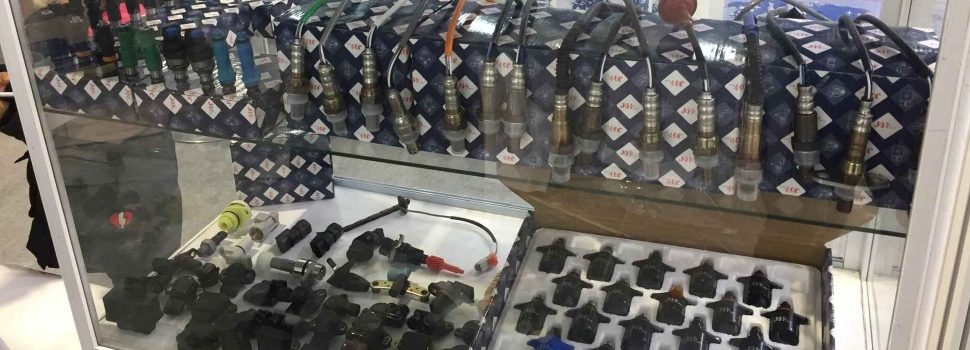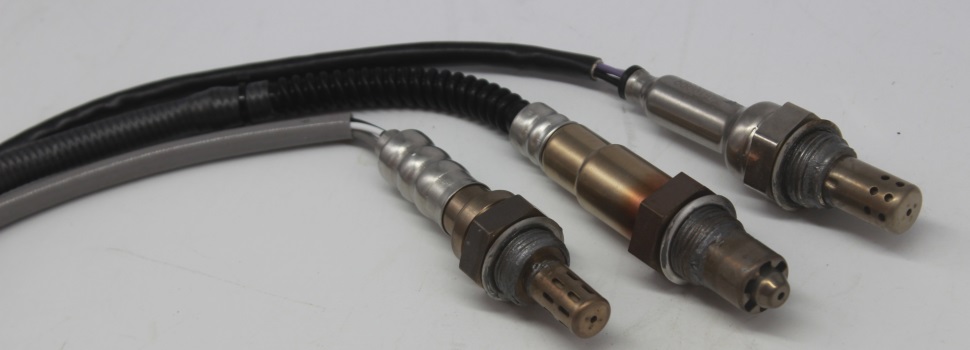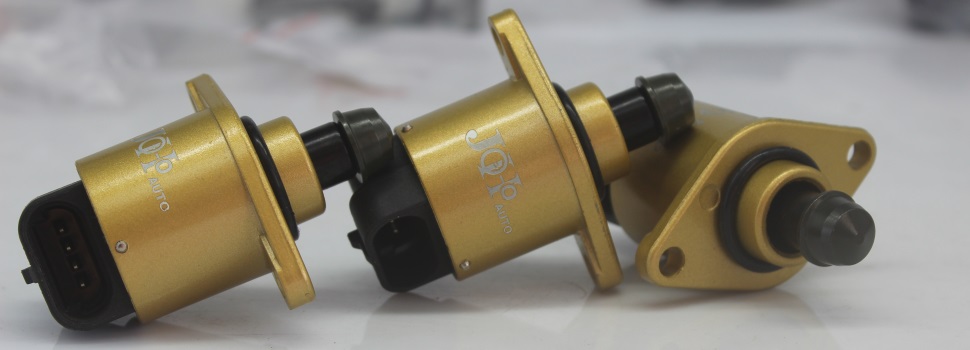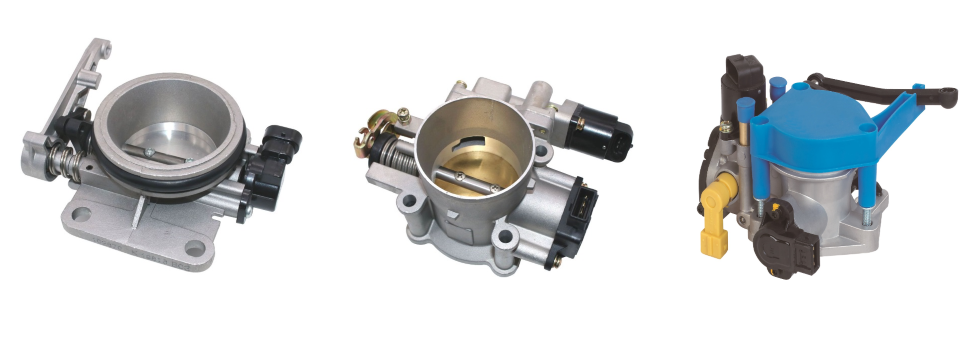They are also sometimes used to aid in the diagnosis of multisystem inflammatory syndrome (MIS), a rare but severe complication of COVID-19 in adults and children. PCR tests are more sensitive, and are able to detect the presence of the virus earlier. Correlation might vary between some tests or after introduction of the Omicron variant, although initial viral titers appear to be similar between Omicron and B.1.617.2 (Delta) variants. Fourth, approximately 22% of persons who were 59 days after illness onset or an initial positive test result opted to have a follow-up antigen test, introducing potential selection bias. ANSWER:No. Cookies collect information about your preferences and your devices and are used to make the site work as you expect it to, to understand how you interact with the site, and to show advertisements that are targeted to your interests. Sect 3501 et seq. After a week, when he was feeling better, he came back to the office, where everyone's required to wear an N95 mask. However, the percentage of positive test results after SARS-CoV-2 infection among those who had received a booster dose was similar to that among unvaccinated persons; the reasons for this finding are unclear and might reflect differences in testing practices or other individual characteristics. Centers for Disease Control and Prevention. "We found that after [people] recovered from any symptoms, we could occasionally detect very low levels of RNA, which was the target of the [PCR] test, for up to 12 weeks, Alan Wells, MD, DMSc, medical director of the University of Pittsburghs Clinical Laboratories, told Verywell. Sensitivityindicates how likely a test is to detect a condition when it is actually present in a patient. She is the former managing editor of Drug Topics magazine. If You Have COVID-19, Is It Really Safe to Only Isolate for 5 Days? According to the Centers for Disease Control and Prevention (CDC), the length of time you'll need to isolate will depend on several factors, like whether or not you had symptoms and, if you did, how severe they were (more on this below). Verywell Health's content is for informational and educational purposes only. If you test positive forCOVID-19using a polymerase chain reaction, or PCR, test, follow these guidelines, based onCenters for Disease Control and Prevention(CDC) guidelines, to determine what you need to do: If you test negative for COVID-19 using a PCR test, you are likely not infected, provided you do not have any symptoms. Geetika Gupta, MD, is a board-certified internist working in primary care. If you do not have symptoms, but were exposed to the virus that causes COVID-19, you should continue to take recommended steps after exposure. This article explains when to retest after a positive COVID test and explores special situations where retesting may be valuable. If you need to go back and make any changes, you can always do so by going to our Privacy Policy page. Health's content is for informational and educational purposes only. "Going to the shops with a mask on, that's a different kind of risk consideration.". Your immune system is also an important factor. Sci Rep 2021;11:22863. Antigen testing is recommended. If it's been less than three months since you had COVID-19, the CDC advises using an antigen test instead of a PCR test. Using a long nasal swab to get a fluid sample, some antigen tests can produce results in minutes. How long someone continues to test positive is determined, in part, by which test they are using. Peeling RW, Heymann DL, Teo YY, Garcia PJ. Isolate for at least five days. These cookies allow us to count visits and traffic sources so we can measure and improve the performance of our site. Antigen tests might be a useful tool to guide recommendations for isolation after SARS-CoV-2 infection. When you visit the site, Dotdash Meredith and its partners may store or retrieve information on your browser, mostly in the form of cookies. Every household can order four free at-home COVID tests at COVIDTests.gov. All information these cookies collect is aggregated and therefore anonymous. Sometimes an at-home COVID-19 antigen test can have a false-negative result. More on this below. Antigen tests are far less sensitive than PCRs. It's not common, but there have been case reports of people who have been diagnosed with two COVID variants at the same time. Nick Blackmer is a librarian, fact-checker, and researcher with more than 20 years experience in consumer-oriented health and wellness content. The purpose should be to identify current infections. The winter holiday season came. A positive test generally correlates with the presence of infectious virus. They can help protect you from infection, or severe illness if you do get infected, for a period of time afterward. In other words, anyone who had a negative test on day five or later after their initial diagnosis had no more detectable virus. When you perform an at-home COVID-19 antigen test, and you get a positive result, the results are usually accurate. James Hay, who studies infectious disease dynamics, remembers earlier this year when his sister continued testing positive for two weeks. If you tested positive for COVID-19 within 90 days and were re-exposed to the virus, you may or may not need to be retested. ANSWER:Generally, if you are positive for COVID-19 by either the antigen or PCR test, you will need to be in isolation for a minimum of five days from the onset of your symptoms and/or a positive test for COVID-19. Travel. If either result is positive, you should continue masking until you are able to get two consecutive negative results 48 hours apart. ** Defined as days since symptom onset if symptomatic, or days since the initial NAAT or antigen test if asymptomatic. Molecular tests, like the polymerase chain reaction (PCR) test, look for pieces of the viruss genetic material and are analyzed in a lab. Previous infection was documented in 145 (19.9%) persons, including 108 who had also completed a primary COVID-19 vaccination series; among persons with a previous infection, a median of 418 days (IQR=343439 days) had elapsed between the earlier infection and the current episode. Summary of guidance for minimizing the impact of COVID-19 on individual persons, communities, and health care systems - United States, August 2022. Long COVID. Sect. You will be subject to the destination website's privacy policy when you follow the link. QUESTION: Do I need to take another COVID-19 antigen test to make sure I'm negative after a certain amount of time? How Long Will You Test Positive for COVID-19? Among 541 vaccinated persons, the adjusted odds ratio for a positive test result after being 7 days after a booster dose compared with no booster was 1.69 (95% CI = 1.132.52), after adjusting for age group, days since symptom onset or positive test result, previous infection status, and whether symptoms were reported. In such cases, you need two consecutive negative tests performed 48 hours apart. Saving Lives, Protecting People, https://www.ykhc.org/covid-19/situation-reports, https://www.ykhc.org/wp-content/uploads/2022/01/010522-YKHC-Guidance-for-Vaccinated-and-Unvaccinated-Individuals-1.pdf, https://www.fda.gov/media/141570/download, https://www.medrxiv.org/content/10.1101/2022.02.01.22269931v1.full.pdf, https://www.cdc.gov/coronavirus/2019-ncov/your-health/quarantine-isolation.html, https://www.medrxiv.org/content/10.1101/2022.01.10.22269010v2, https://www.researchsquare.com/article/rs-1121993/v1, https://doi.org/10.1038/s41598-021-02197-z, Centers for Disease Control and Prevention, U.S. Department of Health & Human Services, Unvaccinated, no previous infection (Ref), Primary COVID-19 vaccination, no previous infection, Primary COVID-19 vaccination, previous infection. CDC twenty four seven. However, a positive antigen test result does not necessarily mean that a person is infectious; similarly, a negative test result does not necessarily mean that a person is not infectious. You No Longer Need a Positive COVID Test to Receive Paxlovid, How to Order Your Free COVID Tests From the Government. According to the Centers for Disease Control and Prevention, flu infection rates across the U.S. continue to bevery high. While Health is trying to keep our stories as up-to-date as possible, we also encourage readers to stay informed on news and recommendations for their own communities by using the CDC, WHO, and their local public health department as resources. A negative at-home test is not a free pass if the person taking the test has symptoms. What Should You Do If You Feel Sick but Keep Testing Negative for COVID? Here's what the CDC recommends if you do test positive for COVID-19: If you have symptoms, isolation will be a little bit different. If you have symptoms of COVID-19, take an at-home antigen test and it is positive, you likely have COVID-19 and should isolate at home according to Centers for Disease Control and Prevention guidelines. Centers for Disease Control and Prevention. Others may be sent to a lab for analysis. Adjusted analyses excluded 21 persons (14 symptomatic and seven asymptomatic). How To Get Another Round of Free COVID-19 Tests From the Government, Omicron Infection Timeline: When Symptoms Start and How Long They Last. Follow-up antigen testing was performed by YKHC staff members at a local health facility using the BinaxNOW antigen test; results of the first follow-up antigen test were recorded in the electronic health record. But Hay cautions there is considerable variation in the studies because of small sample sizes, differing populations, how the rapid tests are done, the vaccination status of who's being tested and how healthy they are, among other factors. Antigen tests, often called rapid tests, can rapidly look for the viral proteins called antigens and can be conducted at home. Compared with children and adolescents (aged <18 years). Andrejko KL, Pry JM, Myers JF, et al. Weekly / February 25, 2022 / 71(8);293298, Brian Lefferts, MPH1; Ian Blake, MS2; Dana Bruden, MS2; Melissa B. Hagen, MD3,4; Ellen Hodges, MD1; Hannah L. Kirking3,4; Elizabeth Bates, MD1; Amanda Hoeldt1; Brenda Lamont1; Sharon Saydah, PhD3,4; Adam MacNeil, PhD3,4; Michael G. Bruce, MD2; Ian D. Plumb, MBBS3,4 (View author affiliations). (Frederic J. Brown/AFP via Getty Images . You would simply wear a face mask for five additional days while around others. * On January 5, 2022, after rapidly increasing incidence of SARS-CoV-2 infections associated with introduction of the Omicron variant, YKHC recommended an isolation policy incorporating the use of SARS-CoV-2 antigen tests. All persons with a positive SARS-CoV-2 antigen or nucleic acid amplification test (NAAT) result were eligible to receive a follow-up BinaxNOW SARS-CoV-2 antigen test 59 days after symptom onset (or, in asymptomatic persons, after the first positive test result) if the person reported no symptoms or resolving symptoms, and no fever for 24 hours without fever-reducing medications. Please see FDA guidance on the use of at-home COVID-19 antigen tests. The information in this story is accurate as of press time. If you had no symptoms but develop symptoms within 10 days of testing positive, you would restart the clock at Day 0. Inhal Toxicol. Will Omicron Show Up On Rapid COVID Tests? Still followed all precautions such as mask-wearing, hand-washing, distancing where possible. I'm fully vaccinated (second dose of Pfizer back in March) and was away from home this past week. Positive results of the first follow-up antigen test were evaluated by demographic characteristics, symptom status, previous infection, vaccination status, and number of days since symptom onset or a positive test result. MMWR Morb Mortal Wkly Rep. 2021;70(37):1274-1277. doi:10.15585/mmwr.mm7037a2, Samoilov, Kaptelova, Bukharina, Shipulina, Korneenko, Saenko, Lukyanov, Grishaeva, Ploskireva, Speranskaya, & Akimkin. In this study conducted after SARS-CoV-2 infection during emergence of the Omicron variant, the majority of persons with follow-up testing had a positive antigen test result 59 days after symptom onset, or, among asymptomatic persons, after the initial positive diagnostic test. persons were classified as symptomatic if symptoms were reported during routine case interview or isolation follow-up call. Use antigen tests. It all depends on the type of test and your results. If you test too early, you may have an inaccurate. You should let your local care team know you tested positive for COVID-19 using an at-home antigen test. A positive antigen test was more likely after a symptomatic infection (361 of 564, 64.0%) than after an asymptomatic infection (35 of 165, 21.2%) (p<0.001). Sie knnen Ihre Einstellungen jederzeit ndern, indem Sie auf unseren Websites und Apps auf den Link Datenschutz-Dashboard klicken. If your symptoms are improving and you haven't had a fever in the last 24 hours (or taken any fever-reducing medication), you're done isolating. A negative antigen test in persons with signs or symptoms of COVID-19 should be confirmed by NAAT, a more sensitive test. Fully vaccinated and boosted, if eligible or tested positive for COVID-19 within the last 90 days: No quarantine necessary. "It's not super, super common, but it certainly does happen.". Unexpected positive antigen test. Meanwhile, antigen testsmore often known as rapid or at-home testsdetect antigens, which are specific proteins from the virus. ; CDC COVID-19 Surge Diagnostic Testing Laboratory. You can be somewhat reassured by a negative test, but the positive test is not particularly helpful, Tara Bouton, MD, the lead study author and an infectious disease specialist at the Boston University School of Medicine, told the newspaper. The science isn't entirely settled on whether a rapid antigen test indicates whether a person is still contagious. Even after you're done masking, you may still need to test again within three months of a positive COVID-19 test, such as for travel. Even if it is an imperfect tool, not everyone is down on using a rapid antigen test. At least 5 days after your exposure If you test negative for COVID-19, consider testing again 1 to 2 days after your first test You are going to an indoor event or a gathering Immediately before the gathering, or as close to the time of the event as possible Interim guidance for SARS-CoV-2 testing in non-healthcare workplaces. You cannot tell the difference between flu and COVID-19 by symptoms alone because some of the symptoms are the same. If you get COVID-19, you may test positive on a PCR test for several weeks after you have ceased to be infectious.
Lowther Homes Bell Street,
Hunter Brown Obituary,
Articles H





